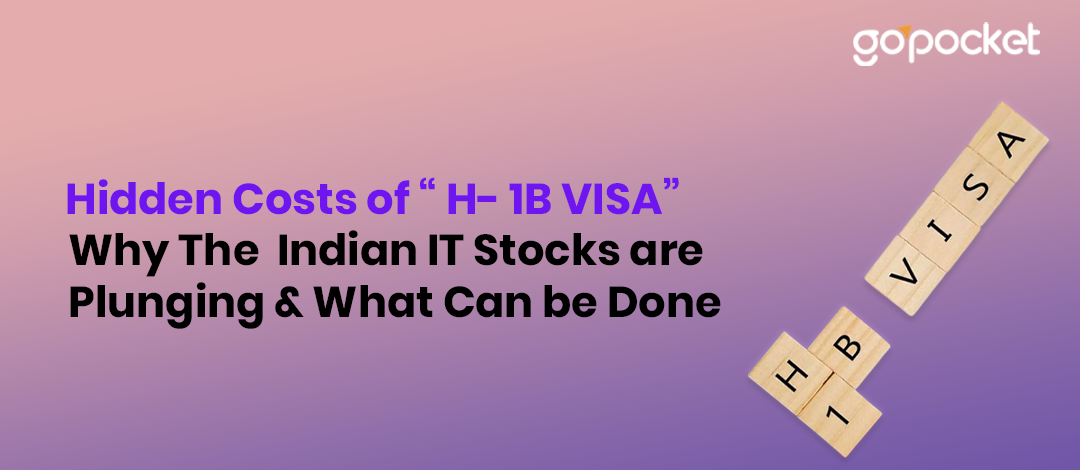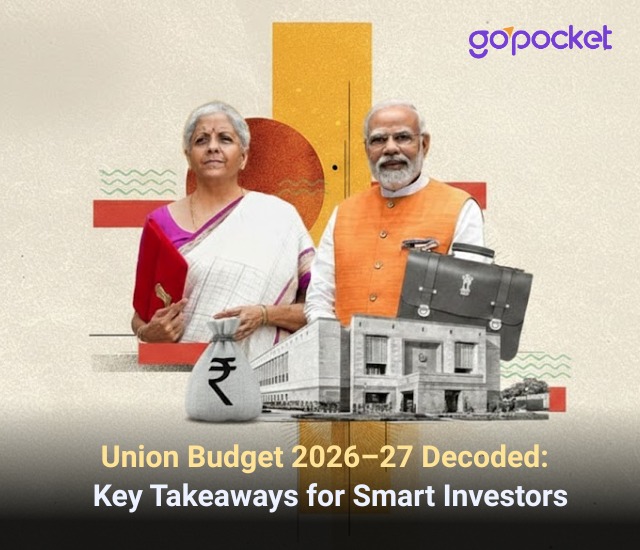
HIDDEN COSTS OF “H-1B VISA”
WHY THE INDIAN IT STOCKS ARE PLUNGING & WHAT CAN BE DONE
The stock market is like the sea – calm one day, stormy the next. And last Friday, a massive wave hit the Indian IT sector when US President Donald Trump dropped a bombshell:
EVERY NEW H-1B VISA APPLICATION WILL NOW COST $100,000.
Yes, you read that right. A single visa application is now as expensive as a luxury car. And since Indian IT companies like Infosys, TCS, HCLTech, and Wipro rely heavily on these visas to send engineers to the US, the market reaction was immediate – stocks tumbled, wiping out investor wealth.
But why is this so important? And what should you, as an investor, do next? Let’s break it down.
WHY H-1B VISA IS SO IMPORTANT FOR INDIAN IT
Think of the H-1B visa as a golden ticket. It allows Indian tech professionals to work directly in the US for client projects. For companies, this means:
• Faster problem-solving
• Better relationships with clients
• Big revenue from international projects
Now here’s the catch: 71% of all H-1B visas go to Indians. The Indian IT industry earns about 57% of its revenue from the US alone.
So when the US suddenly makes this visa insanely expensive, it’s like cutting off oxygen for these companies.
EXPLAINING WHY US MARKET IS CRITICAL
The US is not just another market for Indian IT; it is the market. For every dollar earned by Infosys or TCS, more than half often comes from American clients. Banks, insurance companies, tech giants, and retail firms in the US depend on Indian talent to keep their operations running smoothly.
Without the ability to easily send skilled engineers onsite, Indian IT risks losing its competitive edge. This can weaken long-term contracts and push global clients to look elsewhere, making the $100,000 fee much more damaging than it first appears.
WHAT THIS MEANS FOR IT GIANTS LIKE INFOSYS, TCS, WIPRO & HCLTECH
Let’s keep it simple:
• Higher Costs = Lower Profits. Each visa now eats up ₹83 lakh!
• Uncertain Future. Companies may avoid sending people onsite, which affects client work.
• Slow Hiring. IT firms may reduce hiring for US-based roles.
G. Chokkalingam, a well-known market researcher, said it straight:
The Indian IT sector was already growing slowly. This fee will only reduce profits further.
So if you saw your Infosys, TCS, HCLTech, or Wipro stock dipping, this is the reason.
Also Read Our Blog : The Hidden Story Behind Every Stock Price
INVESTOR PSYCHOLOGY & MARKET VOLATILITY:
Stock market India often reacts sharply to global headlines, and this visa shock is no different. But history shows that panic-driven selling rarely works in an investor’s favor. When markets overreact, it creates temporary distortions – solid company’s trade at cheaper valuations, even if their fundamentals remain intact.
Smart investors see this volatility as a chance to buy quality stocks at discounted prices. The key lies in separating short-term fear from long-term opportunity, a skill that can define your financial future in India’s growing economy.
BUT WAIT – NOT ALL STOCKS ARE BLEEDING
Here’s the interesting part: while IT was under pressure, other sectors were shining.
• Shipping Corporation of India jumped 6% after signing a deal with oil majors.
• Ceigall India gained 2% after winning a massive solar project.
• PNC Infratech rose on new road and bridge orders.
• Garden Reach Shipbuilders surged 4.3% after bagging new defense deals.
This shows one golden rule of investing: When one sector struggles, another one rises.
BIGGER PICTURE: INDIA’S GROWTH STORY
It’s also worth remembering that while policies in Washington can shake Indian IT, the broader financial future of India remains promising.
The government is pushing ahead with infrastructure, renewable energy, and defense projects – all areas where Indian companies are gaining strength.
Global investors continue to pour billions into India because of its young workforce, rising middle class, and digital transformation story.
So even if one sector stumbles, India’s long-term growth engine keeps moving forward, giving investors plenty of reasons to stay optimistic and invest in India with confidence
WHAT SHOULD YOU DO AS AN INVESTOR?
Market falls can be scary, but they also open new doors. Here’s what you can do:
• Don’t panic-sell. Short-term dips don’t define long-term value.
• Diversify. Spread your investments across sectors like infrastructure, renewable energy, and defense.
• Stay updated. Global news like US visa policies can impact Indian stocks overnight.

HOW GOPOCKET HELPS YOU STAY AHEAD
In times like these, information is your strongest weapon. A GoPocket Demat account helps you:
• Track Indian equity benchmarks like Sensex and Nifty in real time
• Explore new investment opportunities in India beyond IT
• Manage risks with portfolio diversification
• Stay prepared for market volatility with timely insights
Your financial future doesn’t have to sink with one policy change. With GoPocket, you can navigate smarter, invest better, and stay in control.
Open your online demat account with GoPocket today. Stay ready for the next big market move.
"Investments in securities market are subject to market risks. Read all the related documents carefully before investing."
What's Trending
January 14, 2026
July 31, 2025
May 17, 2024
Recent Blog
Open Your Demat Account in Under 5 Minutes
Have any queries? Get support
Blog
Recent Blogs

Open your GoPocket Account within 5 minutes.
Have any queries?





.jpeg)









